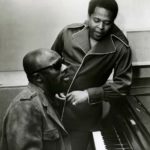Stax Songwriter Series
Carl Hampton and Homer Banks
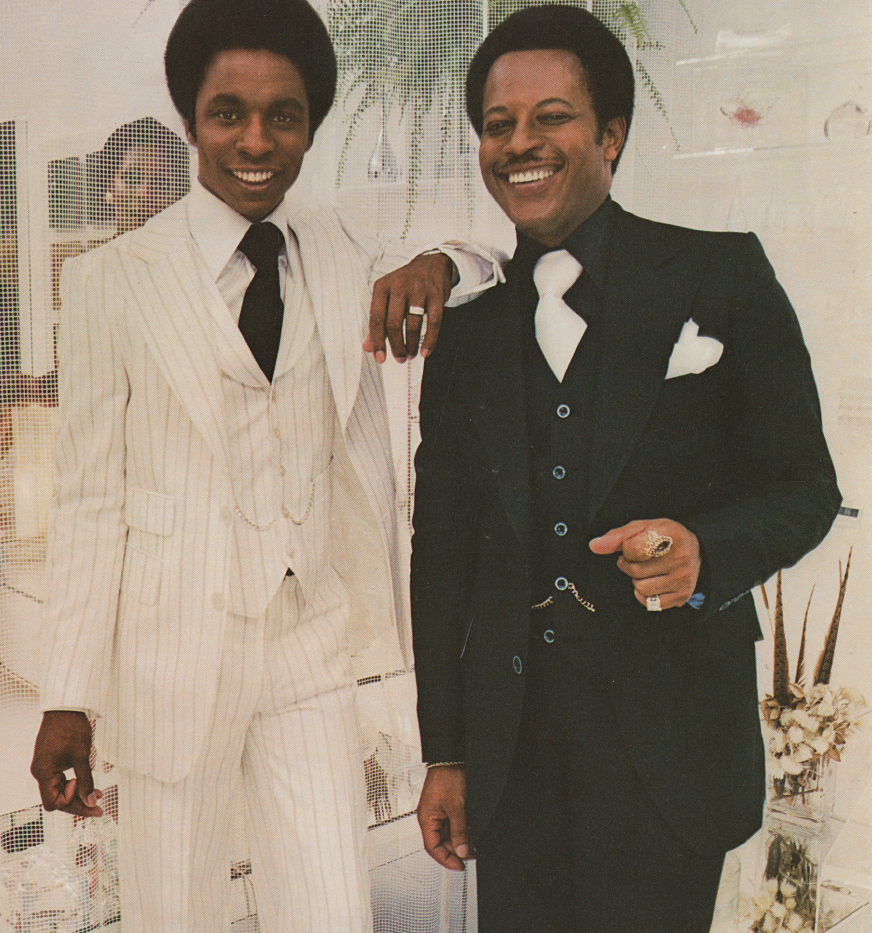
Carl Hampton and Homer Banks
In the wake of the success of We Three, the Stax songwriting team consisting of Bettye Crutcher, Raymond Jackson, and Homer Banks, a splintering of that group made way for the reformation of another. As Crutcher explored new collaborative partnerships, Banks and Jackson enlisted the creative muscle of Carl Hampton, a lifelong musician who’d taken a roundabout path to success at the top of Stax’s heap of songwriting talent.
Carl Mitchell Hampton was born in 1943 and began playing piano during his early childhood. Like Jackson and Banks, Hampton attended Booker T. Washington High School in Memphis, mere blocks away from the site that would famously house Stax Records on McLemore Avenue. Though he was a self-taught musician, he spent his young adult years honing in on the talents of others, taking a liking to the vocation of talent scout and manager for emerging local artists. While assisting an aspiring dancer with a stage show, Hampton connected with Tom Nixon, who in 1970 had recently ascended from a job overseeing production at Stax Records to head his own imprint within the company, We Produce Records, which he ran alongside educator Josephine Bridges. Nixon offered Hampton a role as a songwriting lead for We Produce, enabling Hampton as a fixture in the studio with the label’s roster, including the likes of sweet soul trio The Temprees and rocking soul guitarist Ernie Hines. Hampton notably co-wrote “(Follow Her) Rules and Regulations” and “I’m for You, You for Me” for The Temprees while at We Produce.
However, expressing concern that We Produce’s resources paled in comparison to the amenities afforded to Stax Records’ main roster, Hampton successfully appealed to transfer his services to Stax, ending his short-lived tenure with Nixon and Bridges’ staff. Connecting with one of Stax’s most spirited performers, the ever-infectious Rufus Thomas, Hampton arranged “Do the Push and Pull.”
Homer Banks, born in 1941, grew up singing and writing songs with his best friend Raymond Jackson. After being drafted directly following his graduation from high school, Banks would pass the time by singing lead in a band while in the service.
Returning to Memphis in 1964, he tried his hand at solo stardom, working with David Porter and Isaac Hayes at Genie Records, a short-lived venture led by the two soon-to-be hitmakers while they were on a break from the fledgling Stax Record Company. Banks’ association with Porter and Hayes’ dissension from their home label served as a source of tension between Banks and Stax co-founder Jim Stewart, who dismissed his viability as an artist. Nevertheless, Stewart’s sister and business partner, Estelle Axton, encouraged Banks to practice his songwriting while working at her Satellite Record Shop, adjacent to the Stax recording studio. Deanie Parker, Johnny Keyes, Packy Axton, and Allen Jones all co-wrote tunes with Banks. Naturally, though, he’d team up with his longtime friend, Raymond Jackson, who’d also recently come home from military service, to begin a fruitful and longstanding partnership at the label, beginning with “Next Time,” a song they co-wrote for Johnnie Taylor in 1968.
In the same year, Banks and Jackson would team with Bettye Crutcher to write what would become Stax’s biggest selling single at that time, “Who’s Making Love,” also performed by Johnnie Taylor. The song reached number one on R&B charts and top five in pop and sold 850,000 copies the year it was released before going on to reach two million copies sold.
Other notable compositions by Jackson, Banks, and Crutcher include Johnnie Taylor’s “Take Care of Your Homework, and “I Could Never Be President,” as well as Jeanne & The Darlings’ “It’s Time to Pay (For the Fun We’ve Had)” in 1969. However, Crutcher began to work outside the group, effectively disbanding the trio known collectively as “We Three.”
Carl Hampton’s arrival at Stax Records coincided with the de facto dissolution of the partnership between Crutcher, Jackson, and Banks. Hampton took to working alongside Jackson and Banks. Hampton helped the two veteran songwriters to craft “(If Loving You Is Wrong) I Don’t Want to Be Right” with the intent of placing the song with The Emotions, although the song’s message of infidelity would be deemed too racy for the group. Though the composition would also find its way to Veda Brown, it wouldn’t see a release until 1972, when Luther Ingram recorded the song. The song’s slow melting introduction utilizes the moody groove of a Wurlitzer with accenting wah-wah guitar played by Pete Carr. The song spent four weeks at the top of the Billboard R&B chart while netting Ingram a spot at number three on the U.S. pop music chart. Ingram’s Koko Records released the single backed with another side penned by Banks, Jackson, and Hampton and previously offered to Veda Brown, titled “I’ll Be Your Shelter (In Time of Storm).”
The list of songs Hampton and Banks completed with Jackson in 1972 includes “I May Not Be All You Want (But I’m All You Got)” by Carla Thomas, “Heaven Knows” and “Too Much Wheelin’ & Dealin’” by Mel & Tim, and “It Ain’t Always What You Do (It’s Who You Let See You Do It)” by The Soul Children. The trio even returned to work with The Emotions, for whom they would take on as a production effort, working to craft “From Toys to Boys” and “I Call This Loving You” in the same year.
Seemingly on a creative high, the three men followed a troupe of the most coveted Stax Records staffers to Muscle Shoals for a recording trip scheduled around The Staple Singers. Hampton shipped his piano to his hotel to ensure that he and his songwriting partners would pair as many songs as possible with the recording group who’d had the express backing of Stax executive Al Bell.
The tactic proved successful, with The Staple Singers taking to both “Be What You Are,” “Touch a Hand, Make a Friend,” and “If You’re Ready (Come Go With Me),” a single conspicuously crafted as a spiritual successor to the Staple’s previous chart-topping effort, “I’ll Take You There.”
Tragically, just weeks after the recording trip, Raymond Jackson would succumb to injuries sustained following a fire-related incident in his backyard.
Posthumously, Jackson’s impression on the Stax Records company continued as several artists released songs he penned with Banks and Hampton following his untimely passing. These include “Before the Honeymoon” by Little Milton, “We’ve Been Through Too Much Together” by Eddie Floyd, and “Bridges Instead of Walls” by The Staple Singers, along with numerous releases by The Soul Children, for whom Banks, Hampton, and Jackson were producers.
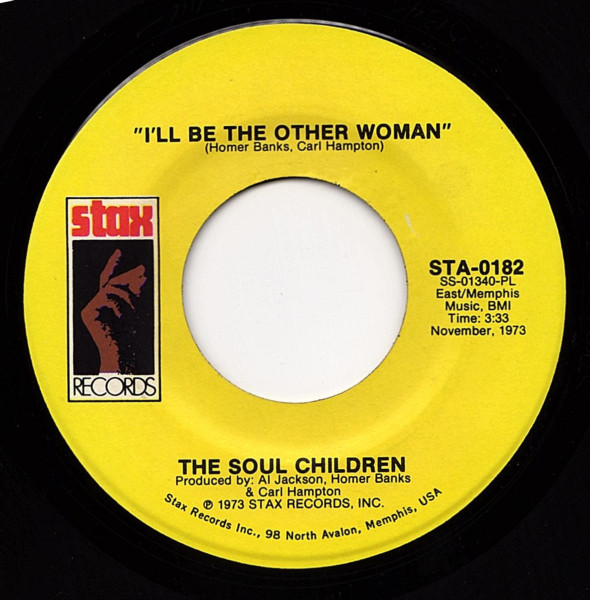
In 1973, Hampton and Banks sat at the helm of The Soul Children’s fourth LP, Friction. The album begins with the single “I’ll Be the Other Woman,” penned by Banks and Hampton. Written from a perspective that ran parallel to “I Don’t Want to Be Right,” the two songwriters explore the female perspective—wherein Shelbra Bennett, one of four members of The Soul Children, who all were capable and interchangeable lead singers, handled the bulk of vocal duties. The song brought The Soul Children a hit, charting at number 3 on the R&B chart and peaking at number 36 on the pop chart.
In the waning days of Stax Records, the two men shifted their focus away from the company, eventually garnering a deal with A&M Records as songwriters in 1975. In 1977, they’d release an album as performers, with their sole release as a duo “Passport to Ecstasy” released on Warner Bros. Records.
Aside from their successes in their era, Banks and Hampton’s compositions found new life through the decades in the form of countless covers and sampled materials borrowed from their catalog. The list of seminal artists who put their own spin on “(If Loving You Is Wrong) I Don’t Want to Be Right” features illustrious names such as David Ruffin, Millie Jackson, Barbara Mandrell, and Rod Stewart, many of whom charted with their renditions of the song. Likewise, urban pop star Aaliyah achieved one posthumous hit with “I Care 4 U,” a ballad built from a sample of The Newcomers’ “(Too Little in Common to Be Lovers) Too Much Going to Say Goodbye,” a Hampton and Banks composition released on Truth Records in 1974. Aaliyah’s song, co-written by hip-hop super producers Missy Elliott and Timbaland, reached number 3 on the U.S. R&B chart and number 16 on the Billboard Top 100.
The Songwriters Series ARCHIVE

Frederick Knight
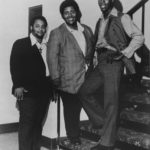
Rance Allen

The Mad Lads
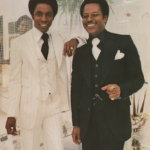
Carl Hampton and Homer Banks

Eddie Floyd and Al Bell

William Bell and Booker T. Jones
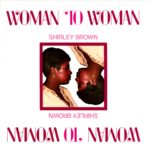
Eddie Marion, James Banks, and Henderson Thigpen

We Three (Bettye Crutcher, Raymond Jackson & Homer Banks)

Eddie Floyd and Steve Cropper
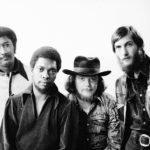
Booker T & the M.G.’s

Steve Cropper and Otis Redding
